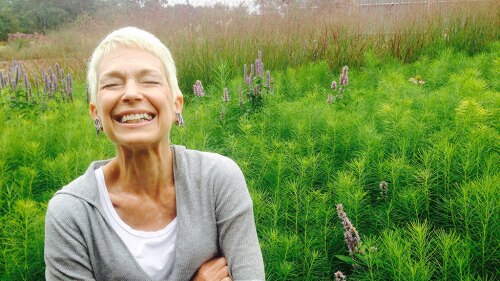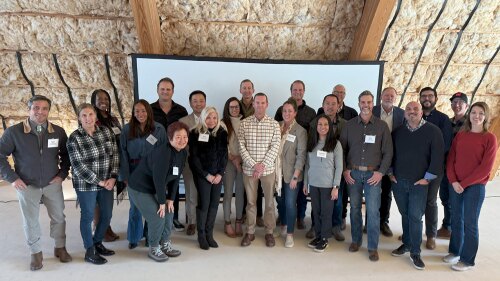While cities attract people who want better opportunities, rapid urbanization could create political and national security crises unless adequate housing is provided in ways and in areas that foster social equity, said Alejandro Aravena, winner of the 2019 J.C. Nichols Prize for Visionaries in Urban Development.
“Cities are magnets and bombs, good news and bad news,” said Aravena. “They concentrate opportunities of every kind. The problem is that the scale, speed, and scarcity of materials we have [to meet housing needs] has no precedence in human history.”
Aravena, partner and founder of ELEMENTAL, an architecture firm in Santiago, Chile, was a featured speaker at the Fall Meeting. He stressed that social equity needs to play a large role when development is being considered. “The reason people come to cities is simple: better schools, better health care, better jobs. In order to achieve this, you have to have enough housing for people, along with a collective space for people to congregate in.”
Aravena and ELEMENTAL are renowned for projects of public interest and social impact, including affordable housing, public space, and transportation. Through this work, Aravena and his ELEMENTAL partners focus on overcoming limited resources with synthesized designs that address major urban challenges affecting people’s quality of life. One example of this approach is the incremental housing designed by ELEMENTAL for residents of the Chilean city of Constitución following a devastating earthquake and tsunami in 2010.
Incremental housing involves providing the basic structure of the dwelling, leaving the remainder to be completed by residents, allowing them to customize their homes and instilling in residents a sense of pride and accomplishment. This approach, which proved highly successful in Constitución, was deemed by ELEMENTAL to be the most cost-efficient way to quickly house thousands of people in need of a place to live. While it was a response for residents displaced by a catastrophe, it is an approach Aravena believes could be replicated to increase affordable housing in other cities.
“If you put together markets and governments and see what they’ve been able to do, they’re not able to deliver a whole house,” Aravena said. “ELEMENTAL’s approach has been to assist people’s own capacity. Instead of being seen as unable to build their own house, they’re able to have the basic framework of a roof over their heads and build out value in their own way. We organize the house strategically and determine what’s the priority and what’s difficult to achieve by oneself. If we can’t do everything right now, our approach is to decompose the problem, find the core, and allow the system to complete itself over time.”
Beyond the approach that ELEMENTAL has pioneered, Aravena said the core principle is to ask the right questions. “We will go into the community and ask what they want to see in their houses. We don’t dictate a top-down approach. We look at housing as a social investment, not an expense. If you spend time designing the question before jumping into the answer, you bring people with you, and, if the question is agreed to, then the solution may not be available in the market and innovation is a necessity.”
Aravena spoke on the panel with F. Barton Harvey, chairman of the Calvert Investment Corporation and the 2008 ULI Nichols laureate, and ULI trustee and former ULI chairman Marilyn Jordan Taylor, who serves on the Nichols Prize Management Committee. Aravena’s leadership should inspire the real estate industry to “rethink how we’ve done things,” Taylor said. Aravena is “more of an architect of a solution around economics, subsidy, fairness, collaboration, and creating a form that helps people,” she added.




